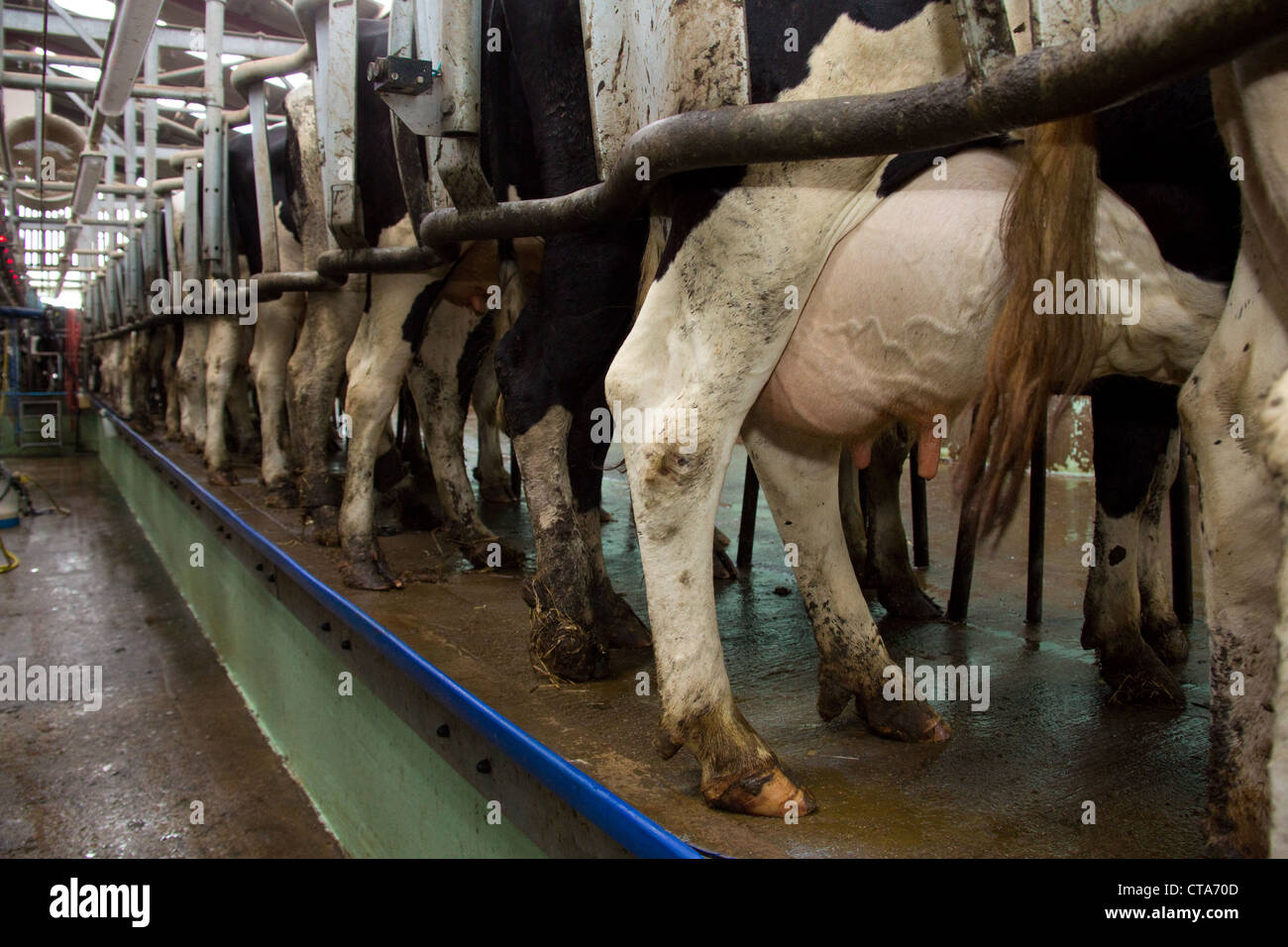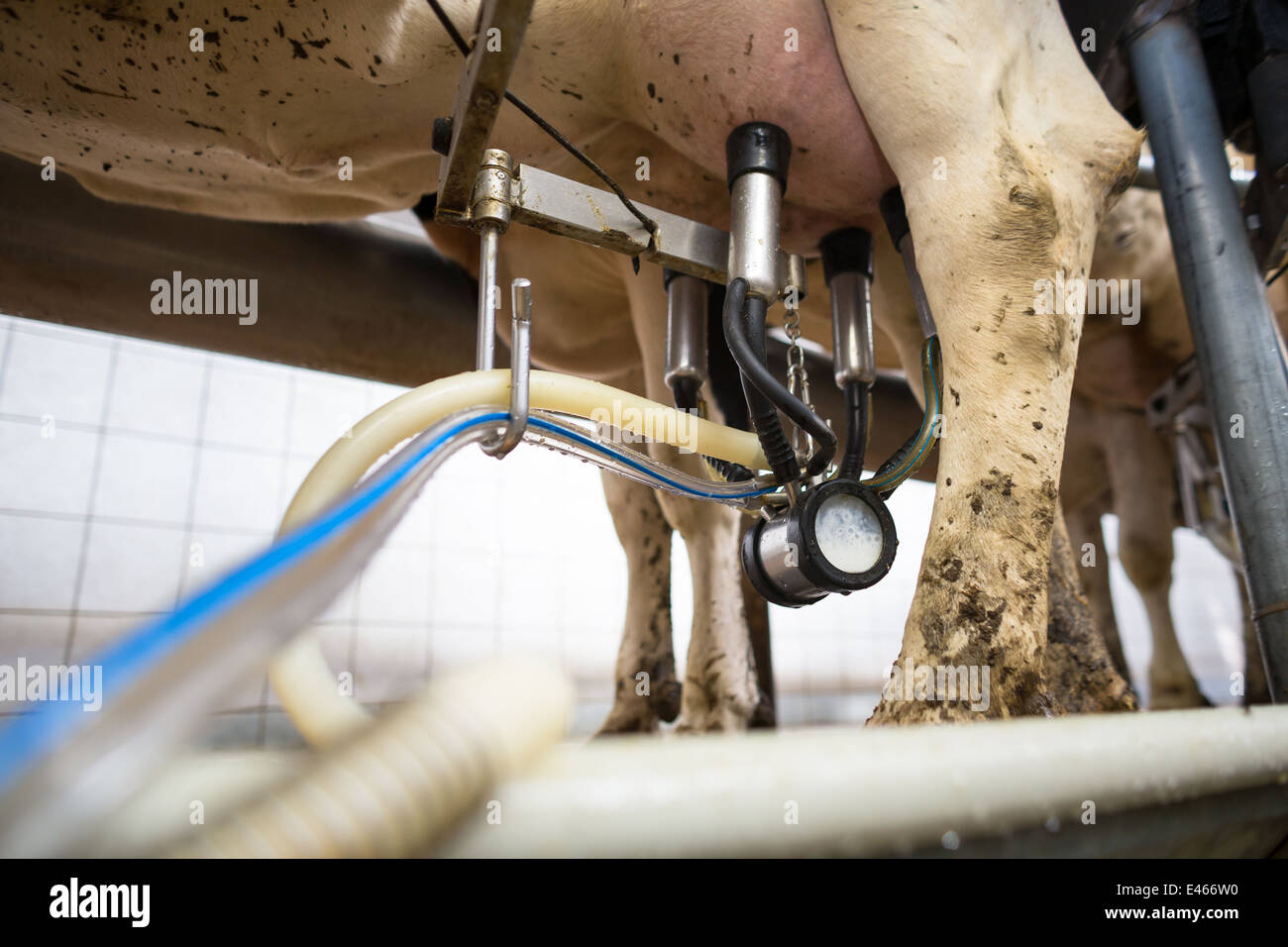Can women be milked like cows? This intriguing question has sparked debates across various platforms, ranging from scientific discussions to cultural and ethical considerations. While the concept might seem far-fetched or even absurd to some, understanding the biological and physiological aspects of female lactation can shed light on this topic. Lactation is a natural process that occurs in mammals, including humans, and it’s essential to explore the mechanisms and limitations of this process. This article aims to delve into the science behind lactation, dispelling myths and offering factual insights into whether women can produce milk under specific conditions.
In recent years, the conversation around human lactation has gained momentum due to increased awareness of breastfeeding and milk production. While lactation is a natural process for women who have given birth, the ability to produce milk without pregnancy or childbirth remains a topic of interest. This article seeks to provide a comprehensive overview of the biological processes involved, addressing both the scientific and cultural perspectives surrounding the idea of milking women like cows. By examining the facts and debunking misconceptions, we aim to offer a balanced view of this controversial subject.
It’s important to approach this topic with sensitivity and respect, acknowledging the cultural and ethical implications. While the concept might evoke curiosity or even humor, it’s crucial to recognize the physiological realities and limitations of human lactation. This article will explore the scientific basis of lactation, addressing questions such as whether women can produce milk without pregnancy and the potential implications of artificial induction. By providing evidence-based information, we hope to foster a deeper understanding of this complex issue.
Read also:Brian Regan A Comedic Genius Who Redefined Standup Comedy
What is Lactation and How Does It Work?
Lactation is a biological process that enables mammals to produce milk for their offspring. In humans, this process is primarily associated with breastfeeding and is triggered by hormonal changes during pregnancy and childbirth. The primary hormones involved are prolactin and oxytocin, which stimulate milk production and release. However, lactation can also occur in certain circumstances without pregnancy, such as through hormonal treatments or mechanical stimulation. This raises the question: Can women be milked like cows under specific conditions?
- Lactation is driven by hormonal changes in the body.
- Prolactin and oxytocin play key roles in milk production and release.
- Induced lactation is possible through medical interventions.
Can Women Be Milked Like Cows Without Pregnancy?
Induced lactation refers to the process of stimulating milk production in women who have not been pregnant. This can be achieved through hormonal treatments, such as taking medications like domperidone or metoclopramide, which increase prolactin levels. Additionally, mechanical stimulation of the breasts, such as through pumping or manual massage, can trigger milk production. While this process is not as efficient or abundant as natural lactation, it demonstrates that women can produce milk under certain conditions. However, the idea of "milking women like cows" remains a metaphorical concept rather than a practical reality.
How Does Human Lactation Compare to Cows?
While cows are specifically bred for high milk production, human lactation is designed to meet the nutritional needs of a single infant. Cows produce significantly more milk due to their physiological adaptations and dietary requirements. Human milk production is limited by factors such as hormonal regulation, breast capacity, and energy expenditure. Therefore, the comparison between human and cow lactation highlights the differences in biological design and purpose. Can women be milked like cows in terms of quantity and efficiency? The answer is a definitive no.
Why is Lactation Important for Human Health?
Breastfeeding offers numerous health benefits for both mothers and infants. For mothers, lactation can reduce the risk of breast and ovarian cancer, aid in postpartum weight loss, and promote emotional bonding with their babies. For infants, breast milk provides essential nutrients, antibodies, and immune support, contributing to their overall growth and development. Understanding the importance of lactation in human health underscores the need for supportive policies and practices that encourage breastfeeding. Can women be milked like cows in terms of health benefits? The focus should remain on empowering women to make informed choices about their bodies and health.
What Are the Ethical Implications of the Question?
Discussing whether women can be milked like cows raises important ethical considerations. The concept may perpetuate harmful stereotypes or objectify women, reducing their worth to their biological functions. It’s crucial to approach this topic with sensitivity and respect, recognizing the dignity and agency of women. Ethical discussions should center on promoting equality, autonomy, and empowerment for all individuals. Can women be milked like cows without compromising their rights and dignity? The answer lies in fostering a culture of respect and understanding.
Can Women Be Milked Like Cows in Cultural Contexts?
Cultural beliefs and practices surrounding lactation vary widely across the globe. In some societies, breastfeeding is celebrated as a natural and vital process, while in others, it may be stigmatized or hidden from public view. The idea of milking women like cows may evoke different reactions depending on cultural norms and values. It’s important to acknowledge these differences and engage in respectful dialogue to bridge gaps in understanding. Can women be milked like cows in a way that aligns with cultural traditions? The answer depends on the specific context and values of each community.
Read also:Charles Pol A Visionary Entrepreneur Who Transformed Industries
What Are the Limitations of Human Lactation?
Human lactation is subject to various limitations, including hormonal regulation, breast capacity, and energy expenditure. Unlike cows, which are bred for high milk production, human bodies are not designed to produce large quantities of milk. Factors such as age, health, and nutrition can also impact milk production. Understanding these limitations helps dispel myths and set realistic expectations for women considering lactation. Can women be milked like cows in terms of quantity and sustainability? The answer is no, as human lactation is inherently different from cow lactation.
What Are the Potential Risks of Induced Lactation?
While induced lactation is possible through medical interventions, it comes with potential risks and challenges. Hormonal treatments may cause side effects such as nausea, headaches, or hormonal imbalances. Mechanical stimulation can lead to discomfort, infections, or damage to breast tissue. It’s essential to consult healthcare professionals before attempting induced lactation to ensure safety and effectiveness. Can women be milked like cows without compromising their health? The answer lies in prioritizing medical guidance and informed decision-making.
Can Women Be Milked Like Cows in Modern Society?
In modern society, the concept of milking women like cows may seem outdated or irrelevant. Advances in science and technology have provided alternative solutions for milk production, such as plant-based and lab-grown alternatives. These innovations offer sustainable and ethical options for meeting the global demand for milk. Can women be milked like cows in a world where alternatives exist? The focus should shift toward empowering women and promoting equality in all aspects of life.
Conclusion: Can Women Be Milked Like Cows?
While the question of whether women can be milked like cows may evoke curiosity or debate, the scientific and ethical considerations provide a clear answer. Human lactation is a biological process with specific limitations and purposes, distinct from cow lactation. The idea of milking women like cows remains a metaphorical concept rather than a practical reality. By focusing on empowering women and promoting equality, we can foster a society that values and respects all individuals. Can women be milked like cows? The answer lies in understanding the science, ethics, and cultural implications of this complex issue.
Table of Contents
- What is Lactation and How Does It Work?
- Can Women Be Milked Like Cows Without Pregnancy?
- How Does Human Lactation Compare to Cows?
- Why is Lactation Important for Human Health?
- What Are the Ethical Implications of the Question?
- Can Women Be Milked Like Cows in Cultural Contexts?
- What Are the Limitations of Human Lactation?
- What Are the Potential Risks of Induced Lactation?
- Can Women Be Milked Like Cows in Modern Society?
- Conclusion: Can Women Be Milked Like Cows?


